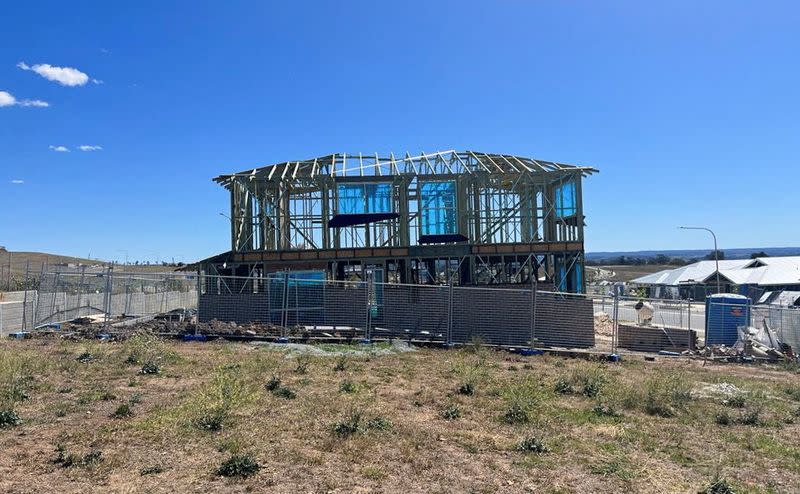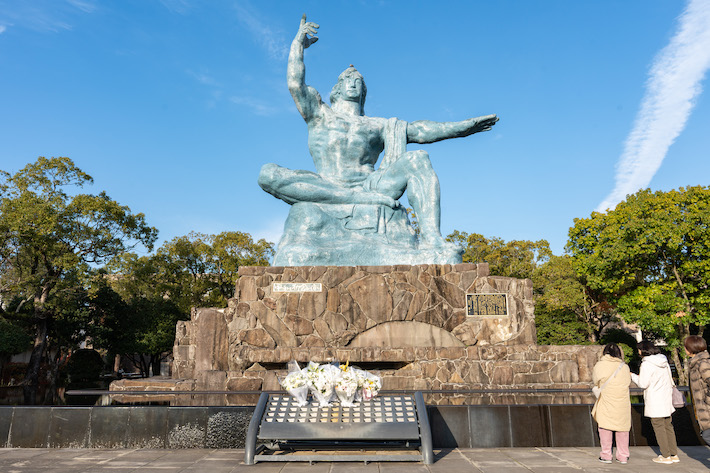China’s property sector crisis is affecting developments throughout the Asia-Pacific, as well as most of the 30-plus provinces on the mainland.
Major projects in Australia – such as the “master-planned community” at Wilton Greens, outside Sydney – plus another in Malaysia are prime examples.
Four years after property giant Country Garden launched a A$2 billion ($1.27 billion) development of 3,600 homes an hour’s drive southwest of Sydney, the outer suburban site remains a sparse field with fewer than 50 houses under construction.
The new suburb of Wilton Greens promised buyers shady, tree-lined streets, sporting fields, bike paths, parks and a new local school, but it is one of a string of stalled overseas developments the cash-strapped Chinese property giant is now seeking mostly to offload as it scrambles to pay creditors.
ALSO SEE: Country Garden Seen Defaulting on Its Offshore Debt
No infrastructure at incomplete Sydney project
In Malaysia, its plans for the $100-billion Forest City development billed as a paradise with turtles and white-sand beaches are far from completion.
On Sydney’s outskirts, the lack of certainty around construction at the 433 hectares (1,070 acres) Wilton Greens project where house and land packages start from about A$900,000 ($571,770) comes as policymakers race to address a critical housing shortage in Australia’s largest city but struggle to provide the needed infrastructure.
The development about 82km from the city’s central business district is 15km from the nearest public high school, which is full, while the nearest ambulance, hospital and commuter rail services are more than a 20-minute drive away. A lack of sewer services means effluent will have to be piped to a communal tank and driven away daily in trucks until at least 2026.
“They promise you, in the brochure, this fancy landscape where trees are everywhere and flowers are growing and lakes are great to walk around. It’s going to be years until it looks like that – decades,” Sebastian Pfautsch, an associate professor of urban planning at the University of Western Sydney, said.
Big promises but huge uncertainty
The gap between the promise and the reality of Wilton Greens reflects the changing fortunes of an ambitious global expansion by China’s mega-developers that has stalled as rising interest rates squeeze both demand and the companies’ ability to repay debt.
That has left Country Garden, once China’s biggest private developer, which on Wednesday reiterated it was unlikely to meet all of its offshore debt repayments amid liquidity problems, trying to sell a project that is barely started and mired in uncertainty.
Whoever buys the remaining 330 hectares of Wilton Greens, some 2,400 vacant lots, is “going to be picking up an incomplete project with no guaranteed date for infrastructure”, said Suzy Brandstater, a former school teacher from nearby who sits on the council that approved the development after initially opposing it because of environmental and infrastructure concerns.
“Being told, ‘Just trust us, it’ll be there when it’s needed’ is not good enough for me and I don’t think it’s fair to the people that build here,” she said.
To be sure, the problem is not unique to Country Garden, with local governments around Australia struggling to supply essential infrastructure for outer suburban developments as buyers priced out of inner areas look to options further afield.
Two people who bought blocks at Wilton Greens, who declined to speak on the record, said they did not plan to live there but were pleased with their purchase because they believed the land value had increased, a sign Country Garden will not necessarily lose money on the venture as it has elsewhere in the world.
Unlike Country Garden’s other global projects, its financial exposure in Australia is mostly land purchase price and costs associated with subdivision. Individual property buyers, who must pay for their own construction, are liable for unforeseen costs once their land sale closes.
Country Garden Australia CEO Guotao Hu said in a statement the company’s Australian assets “continue to perform well, in line with normal market behaviour and as planned”.
“Selling of these partial remaining parcels of land is part of Risland’s approach to portfolio optimisation,” he added, referring to the company’s Australian subsidiary.
Country Garden did not disclose a purchase price when it announced the subdivision project in 2019, with a declaration at the time that “Risland is with the Wilton community for the long term”.
The Chinese firm has not said how much it hopes to make by selling most of the project. A person with direct knowledge of the sales process said it was uncertain whether a deal would eventuate.
- Reuters with addtional editing by Jim Pollard
ALSO SEE:
Country Garden’s $17bn Offshore Debt on Verge of Default
China’s Country Garden Stocks Plunge on Foreign Debt Warning
Country Garden Voices ‘Deep Remorse’ for $6.7bn First Half Loss
China-Backed Malaysia Megacity Project Struggles – FT
























